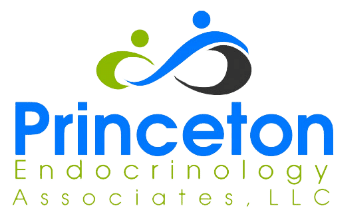Problems with your parathyroid glands can result in serious issues like osteoporosis or heart disease. Princeton Endocrinology Associates in Princeton, New Jersey, provides thorough evaluations and effective treatment for patients with parathyroid issues. The team takes time to develop the best care plan for each patient. To schedule your visit, call the office or book online today.
Parathyroid Q & A
What is parathyroid disease?
Your parathyroid glands are responsible for producing parathyroid hormone (PTH), which helps your body maintain the right balance of calcium and phosphorus. Calcium and phosphorus are essential to a number of functions throughout the body including brain, nerve, and muscle health.
Parathyroid disease refers to conditions that cause you to produce too little or too much PTH, disrupting this balance. There are two different types of parathyroid disease: hyperparathyroidism and hypoparathyroidism.
What is hyperparathyroidism?
Most people with parathyroid disease suffer from hyperparathyroidism, which occurs when your body produces too much PTH. Excess amounts of PTH result in high levels of calcium in the blood. Over time, high calcium levels can lead to kidney stones or heart disease.
In many cases, people with hyperparathyroidism don’t experience any symptoms. Advanced cases of hyperparathyroidism may cause osteoporosis or symptoms such as:
- Excessive urination
- Bone pain
- Joint pain
- Kidney stones
- Weakness
- Fatigue
Hyperparathyroidism is often caused by a benign tumor that causes the parathyroid gland to produce too much PTH. Hyperparathyroidism can also be caused by underlying conditions like chronic kidney failure or severe calcium or vitamin D deficiency.
What is hypoparathyroidism?
Hypoparathyroidism is a much less common type of parathyroid disease. Hypoparathyroidism occurs when your parathyroid gland produces too little PTH. This causes an abnormal decrease in blood and bone calcium levels and an increase in blood phosphorus.
If you have hypoparathyroidism, you may notice a number of symptoms including:
- Muscle aches or spasms
- Fatigue
- Dry skin or brittle nails
- Tingling in your fingers, toes, and lips
- Anxiety or depression
The most common cause of hypoparathyroidism is injury to the parathyroid gland after neck surgery. The condition can also be caused by autoimmune diseases, low levels of magnesium, or radiation treatment of the neck.
What treatments are available for parathyroid disease?
Before you begin treatment, your doctor performs a physical exam and blood tests to confirm the type of parathyroid disease you have. Other testing may be done to determine the cause of your parathyroid disease as well.
Treatment for hyperparathyroid disease may involve watchful waiting or sometimes surgery to remove tumors on the gland.
For hypoparathyroidism, treatment typically involves supplementation to normalize the levels of calcium, phosphorus, magnesium, and vitamin D in your body. Sometimes medications are used as well.
For expert treatment for parathyroid disease, call Princeton Endocrinology Associates or book an appointment online today.










